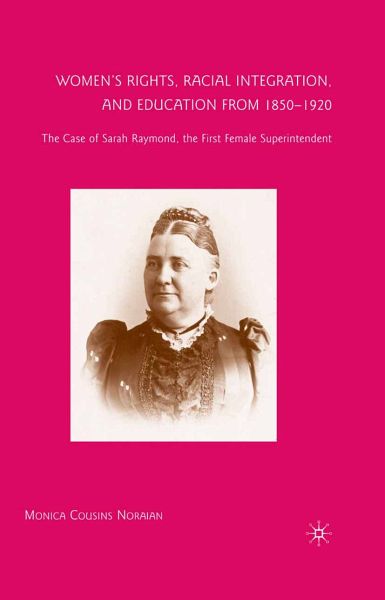
Women's Rights, Racial Integration, and Education from 1850-1920 (eBook, PDF)
The Case of Sarah Raymond, the First Female Superintendent
Versandkostenfrei!
Sofort per Download lieferbar
40,95 €
inkl. MwSt.
Weitere Ausgaben:

PAYBACK Punkte
20 °P sammeln!
This historical biography examines Sarah Raymond Fitzwilliam's abolitionist roots growing up on a stop of the Underground Railroad, her training at a 'normal school,' her tenure as a teacher, principal and the nation's first city school superintendent (Bloomington, Illinois 1874-1892).
Dieser Download kann aus rechtlichen Gründen nur mit Rechnungsadresse in A, B, BG, CY, CZ, D, DK, EW, E, FIN, F, GR, HR, H, IRL, I, LT, L, LR, M, NL, PL, P, R, S, SLO, SK ausgeliefert werden.












